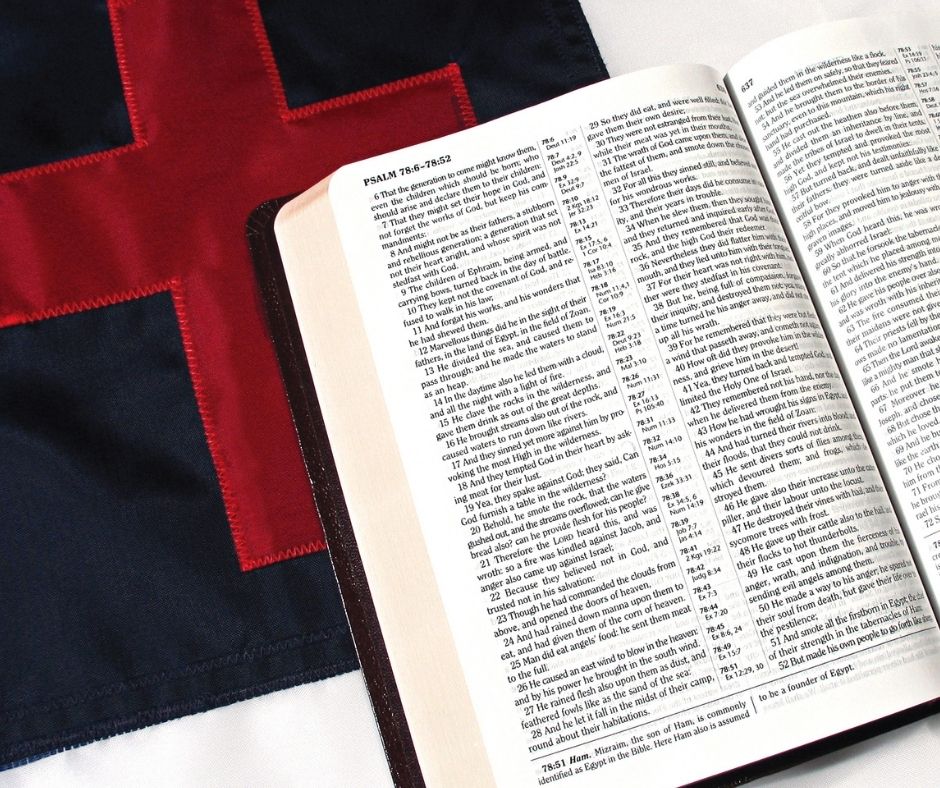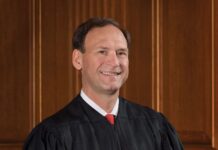One week from today, Liberty Counsel will present oral argument to the U.S. Supreme Court on behalf of Boston resident Hal Shurtleff and his Christian civic organization, Camp Constitution, arguing that the city of Boston violated the First Amendment by censoring a private flag in a public forum open to “all applicants” merely because the application referred to it as a “Christian flag.” The flag itself was not the problem. Had it been referred to as anything but “Christian,” Boston would have approved it. Oral argument in Shurtleff v. City of Boston will begin at 10 a.m. on Tuesday, January 18, followed by a press conference outside of the Supreme Court.
This case will affect everyone. If Boston can open a public forum for all applicants but then close the forum to disfavored viewpoints, then every government will be able to censor viewpoints under the guise that every private speaker in the forum was engaging in government speech.
Boston censored the religious viewpoint of Camp Constitution’s flag, which was to be raised for about an hour the week of September 17 in observance of Constitution Day, while supporters gathered around the flagpole. The flag was part of the ceremony to honor the Constitution and recognize the Judeo-Christian heritage and Christian Founders, like John Adams and Samuel Adams, both who were residents of Massachusetts.
Liberty Counsel has received 17 amicus briefs filed in support of the free speech case, including from the United States of America, 12 states and a wide range of organizations, even the American Civil Liberties Union of Massachusetts.
Boston had never censored any flag until Camp Constitution’s flag, which is white with a blue square and a red cross in the upper left corner. The flag contains no writing. Under oath, the city official testified the flag would have been approved if the application did not refer to it as a “Christian flag.” The word “Christian” on the application alone triggered the censorship. The official said he had never heard of a “Christian flag” until Camp Constitution’s application. Therefore, his testimony revealed that if Camp Constitution had not referred to the flag on the application with the word “Christian,” it would not have been censored. If the application had referred to the flag as the “Camp Constitution Flag,” then Boston Commissioner Gregory Rooney would have approved it.
The city refers to its flagpole as a “public forum” open to “all applicants” to temporarily raise their own flags on the flagpole. The city of Boston’s website even states the goals for flag-raising events: “We commemorate flags from many countries and communities at Boston City Hall Plaza. We want to create an environment in the city where everyone feels included.”
For 12 years from 2005-2017, Boston approved 284 flag raisings by private organizations with no denials, but then denied Camp Constitution’s flag solely because of the word “Christian” on the application. The year before Camp Constitution’s application (2016-2017), Boston approved 39 private flag raising events, which averaged three per month. In 2018, Boston approved 50 private flag raising events, averaging nearly one per week. One included a flag of a private credit union.
Other flags raised on the city’s flagpole include the Turkish flag (which depicts the Islamic star and crescent) and the Portuguese flag (which uses religious imagery). City officials have also never denied the “messages” communicated by the “Chinese Progressive Association,” the rainbow flag of Boston Pride and a “transgender” pink and blue flag. The flags of private community groups include Albania, Brazil, Ethiopia, Italy, Panama, Peru, Portugal, Puerto Rico and Mexico, as well as of Communist China and Cuba. No flag was ever denied until the city denied the flag of Camp Constitution.
Boston now argues that despite the policy and longstanding practice, the private flag raisings are actually government speech. But this argument is nonsense because one week, a private group celebrating Communist China flew the flag of China, and the next week, a different private group opposed to Communist China flew the flag of Taiwan. Both of these opposing views cannot possibly be government speech.
Shurtleff and Camp Constitution first asked the city in 2017 for a permit to raise the Christian flag on Boston City Hall flagpoles to commemorate Constitution Day and Citizenship Day (September 17) and the civic and cultural contributions of the Christian community to the city of Boston, the Commonwealth of Massachusetts, religious tolerance, the Rule of Law and the U.S. Constitution.
The First Circuit Court of Appeals sided with the city of Boston, finding that the flags were government speech. The appeals court wrongly accepted the city’s argument that the Establishment Clause justified its censorship. However, (1) the application form designates the flagpole as a “public forum” open for “all applicants”; (2) the city never censored a flag in the 12 years prior to Camp Constitution’s application; (3) the city approved 39 flags (averaging over three per month) in the year prior to Camp Constitution’s application; and (4) the flags of the foreign countries could not be government speech because under state law it is a crime to raise the flag of a foreign country on city property.
Liberty Counsel’s Founder and Chairman Mat Staver said, “This case is about more than just the Christian flag. This will set national precedent and affect everyone. We must not give government the power to censor disfavored viewpoints in a public forum.”
For more information on the case, visit www.LC.org/flag.

















